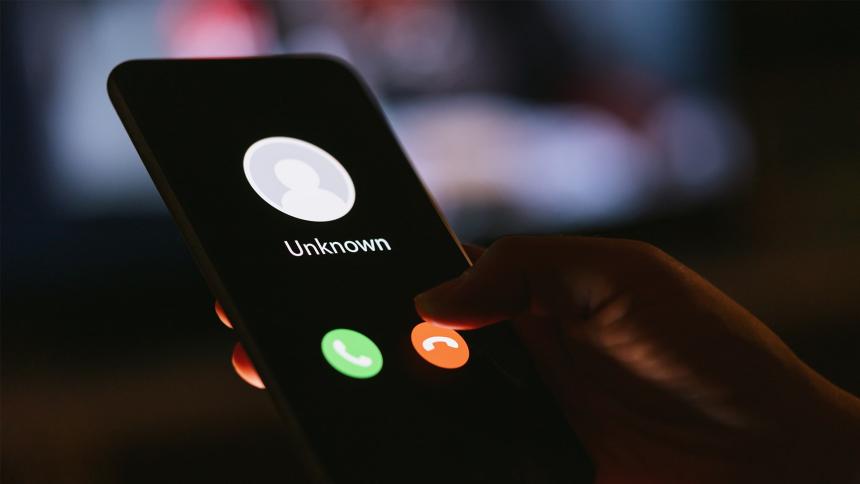
7 phone scams and how to avoid them
Telephony has evolved perhaps more than almost any other form of technology in the last few decades. It wasn’t that long ago that calls were made on landlines and mobile phones had to be powered by batteries the size of a small car.
Nowadays, we all carry mobiles with the capability of computers in our pockets, and video calls and internet-based messaging systems are our primary forms of telephone-based communication. Yet, no matter how technologically advanced these objects get, scammers are always keeping up, devising new and innovative ways of illegally parting us from our hard-earned cash.
In 2022, over 36 million Brits were targeted by a fraudster, with a staggering proportion of those con artists using our phones to contact and deceive us. Younger generations were 60% more likely to be targeted by text or messaging services, while those over 55 were 73% more likely to be targeted via a phone call. 54% of those scams were concerned with the bogus delivery of goods, and 41% were perpetrated by someone posing as a government official.
It pays to be aware of these kinds of cons. Here are seven phone scams to watch out for.
1. The missed call trick
Nice and simple, this one. You’ve likely been a victim of it too, to one extent or another. Your phone rings. Usually just once. Enough to register a missed call on your phone. You don’t recognise the number, so you ring it back. Although it may look like a ‘normal’ number, it’s actually a premium rate call. You’re now being charged a small fortune for every minute you’re on the call.
Sometimes you may be told that you’ve won a prize and need to call another number to redeem it. That number is then an even more exorbitant premium rate call. The scammers take your details and waste your time, all while your bill shoots up and up.
2. The stolen bank card scam
Your bank calls you and informs you that, unfortunately, your card has been flagged with them for ‘suspicious activity’. Some strange transactions have been put through and they’d like to check them with you. You panic. ‘Don’t worry,’ they say. ‘If the charges weren’t yours, the money won’t leave your account.’
First of all, though, some security questions. Pretty standard stuff. So they ask you some posers which you answer. You want to get to the bottom of the issue, after all. The trouble is this isn’t your bank. And the questions you’ve just answered have now given a scammer exactly the information they need to commit the rip-offs they were lying about in the first place.
If you get one of these calls, hang up and call your bank directly to question it. Don’t go along with a call out of the blue, no matter how professional or legitimate you think it sounds.
3. The ‘yes’ theft
‘Can you hear me?’
It’s the first thing you hear when you answer the call. You can, so naturally, you just say ‘yes’. And just like that… the grift is on.
The original question was, likely, an AI voice. Not that it matters too much. The important voice was yours. You were recorded by the scammer who will then use the audio clip of you saying ‘yes’ to gain access to security features with voice tech security.
4. The fake tax office ‘court case’ grift
No one wants to upset His Majesty’s Revenue and Customs. So when someone receives a call supposedly informing them that the HMRC is starting legal action due to an unpaid tax bill, it can be frightening.
Of course, unless you evade tax, you’re extremely unlikely to be due in the dock for tax evasion. It is, of course, a scam. When prompted to ‘press 1 to speak to a caseworker’, it can be tempting. But don’t. Hang up. For peace of mind, perhaps call the HMRC to check your affairs are in order (they more than likely will be) and - more importantly - report the fraud attempt.
5. The bank transfer trick
There are so many scams out there where the criminals pretend to be calling from your bank. The most common ones attempt to get you to transfer money from your account into theirs right there and then over the phone.
Your account, you’re told, has been compromised. Perhaps because of a retail company’s data breach or something. It may be cleared out of funds very soon. In order to stop this from happening, all the money in the account needs to be transferred to another, more secure, account. Time is very much of the essence (this is a common ploy, to stop you from taking a few minutes to consider the situation or seek advice).
For security, you’re asked for a PIN, password, or answer to a security question or two. You relay the information. The call ends. You’ve just surrendered some pretty vital info.
If this happens, contact your bank immediately.
6. You’ve won a prize!
Who doesn’t love winning a prize? The thing is, though, unless you entered a competition, it’s not hugely likely you’re going to win one. So if you get a call telling you that you’re the lucky winner of some contest you’ve never heard of, be suspicious.
Feel free to talk to the people and ask about the prize. Just, whatever you do, don’t hand over your bank details to ‘take receipt of the prize money’.
7. The relative in trouble shakedown
Our final phone scam is very often targeted at the elderly. Someone calls up in a panic claiming to be the best friend or boyfriend/girlfriend of a relative. Perhaps a grandchild, niece or nephew. The relative is in trouble, perhaps due to an accident or an arrest. They need money for healthcare treatment because they’re abroad or something along those lines.
Sometimes, the person will even claim to be the actual relative. They sound different because the connection isn’t very good. Apparently.
If you’ve been a victim of any kind of fraud - or are aware of a scam that you think the police need to be aware of, report it. You can let The National Fraud & Cyber Crime Reporting Centre know about it via the Action Fraud website.









